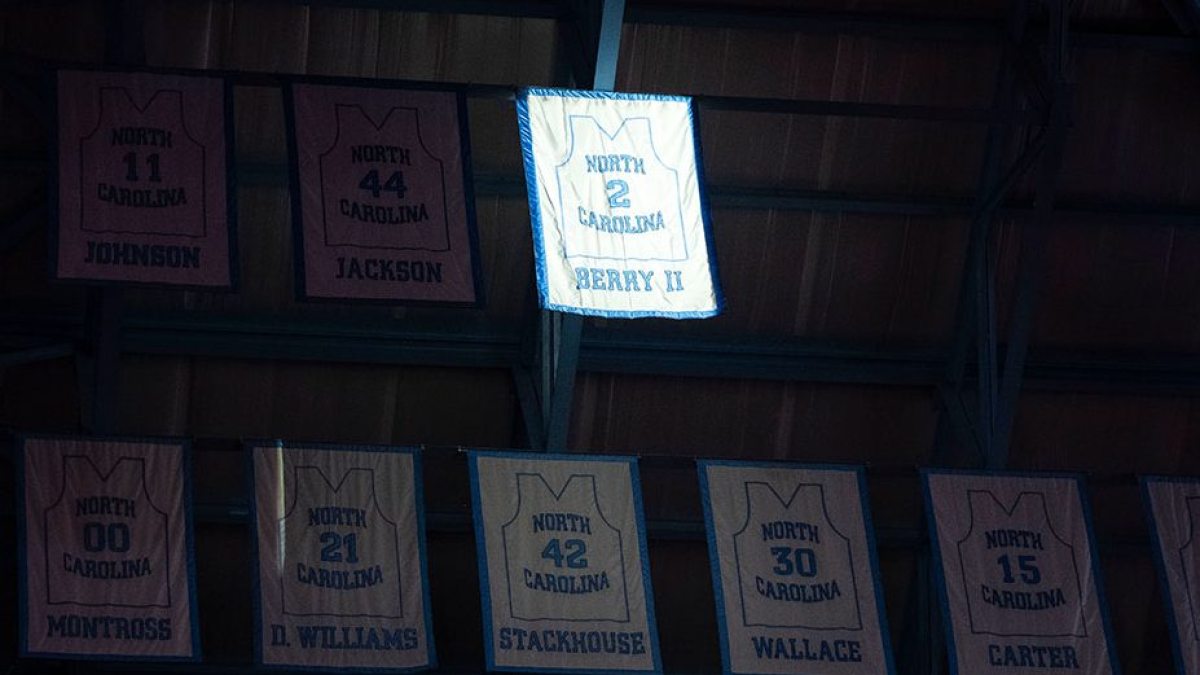Game changer
How will the new NCAA ruling allowing college athletes to profit from their name, image and likeness rights affect the Carolina community? UNC Athletics explains.

On June 30, the NCAA ruled that student-athletes can make money by selling their name, image and likeness (NIL) rights while playing in college, reversing its position on the definition of “amateurism” after years of legal pressure from schools and athletes.
The new rule opens a wide range of possibilities for Carolina student-athletes, but also the potential for challenges and adjustments. Associate Director of Athletics for Compliance Marielle vanGelder spoke with The Well to explain how the new NIL rules will affect student-athletes, and what changes faculty, staff and fans should expect to see in the fall.
Can you explain the NCAA’s new policy on name, image and likeness rules?
For the first time, student-athletes can use their name, image and likeness to make money while still being considered amateurs. Student-athletes have always been allowed to have jobs, but they couldn’t use their status as a student-athlete to promote their employment or personal business. Now, they’ll be allowed to market themselves and partner with organizations and businesses as spokespeople or to promote products.
What hasn’t changed is that student-athletes can’t be compensated because of their status as a student-athlete or for any specific athletic performance or achievement. For example, someone can’t offer deals or bonuses to a football player for each touchdown scored. Most importantly, student-athletes still can’t be compensated to attend a specific institution, which would be considered a recruiting inducement.
What is covered under NIL rules?
Student-athletes can now be featured in photographs and advertising endorsing products or companies. They can make personal appearances at restaurants, sign autographs and run sports camps, clinics and teach classes while presenting themselves as Carolina athletes.
If they are artists, musicians or clothing designers, they can sell their work by advertising their status as student-athletes at Carolina.
Does North Carolina have any laws dictating how athletes can profit from their NIL?
Several states did pass preemptive legislation before the NCAA ruled on the NIL policy, but as of July 1 there has been no such legislation in North Carolina. We’ll default to NCAA rules until the state makes a decision.
What does the NCAA’s NIL ruling mean for Carolina athletes legally?
Student-athletes will have the chance to engage in all these new opportunities but never during time that is dedicated to training or playing their respective sports, or academics. For the majority of the around 800 student-athletes at Carolina, nothing will change.
We’re urging our student-athletes to be cautious about signing any deals without careful consideration simply because there are financial and legal ramifications that could affect their financial aid or even green card status. Any student-athlete can seek free legal advice at Carolina Student Legal Services.
How will this ruling affect faculty, staff and fans?
Athletics is interested in partnering with faculty and staff on campus who could serve as industry experts to educate our student-athletes in managing finances, marketing, branding, taxes and intellectual property.
Previously, fans couldn’t buy jerseys or Carolina branded wear with student-athletes’ names, and now the University has the flexibility to move in that direction. They also might see their favorite college athletes appear in uniform in video games in the future. Fans can simply expect to see more of our college athletes across all platforms.
Who should employees, fans or student-athletes contact with questions?
UNC Athletics is currently working on a page for our website to collect information and an NIL-specific email address to help answer questions. In the meantime, they can contact us directly with any questions. Student-athletes can reach out directly by emailing any questions to uncnil@unc.edu.




